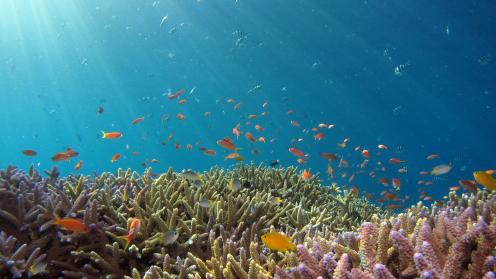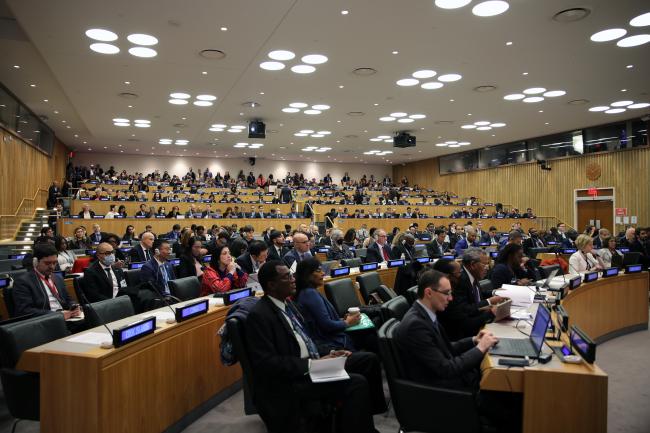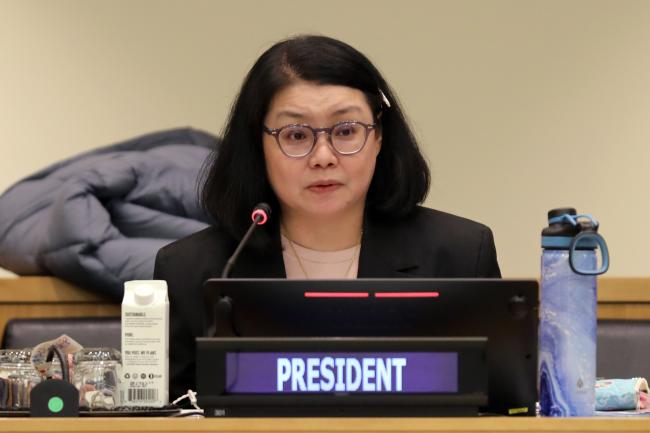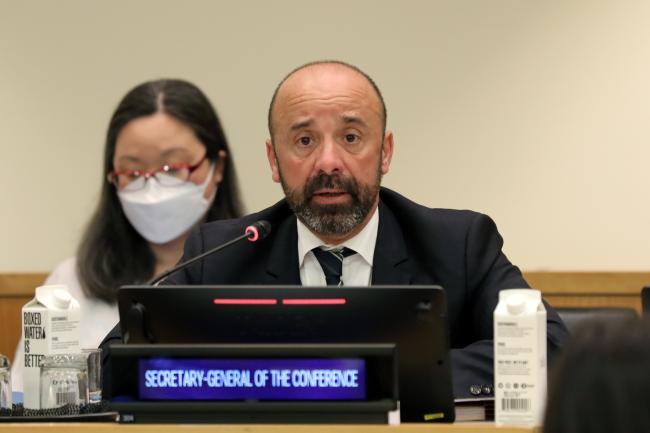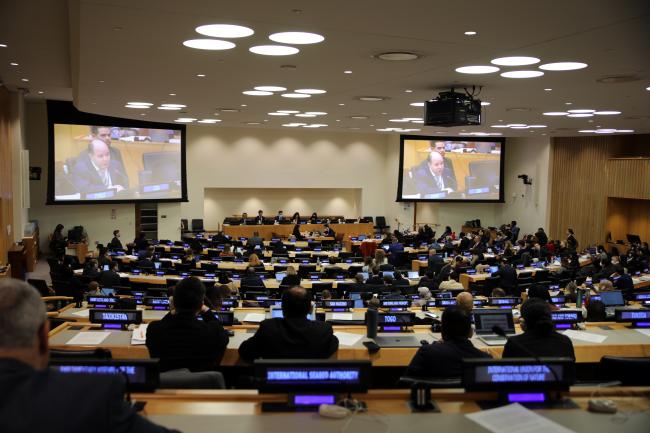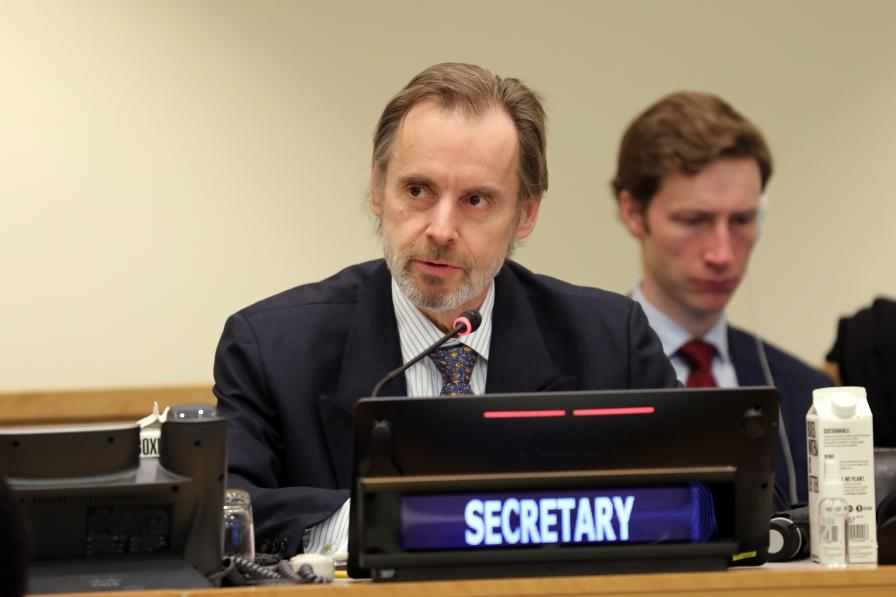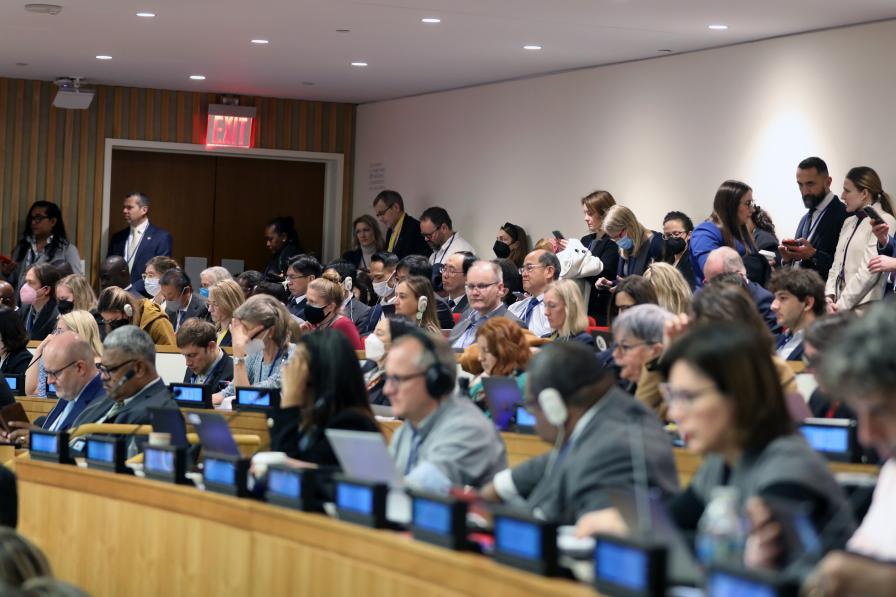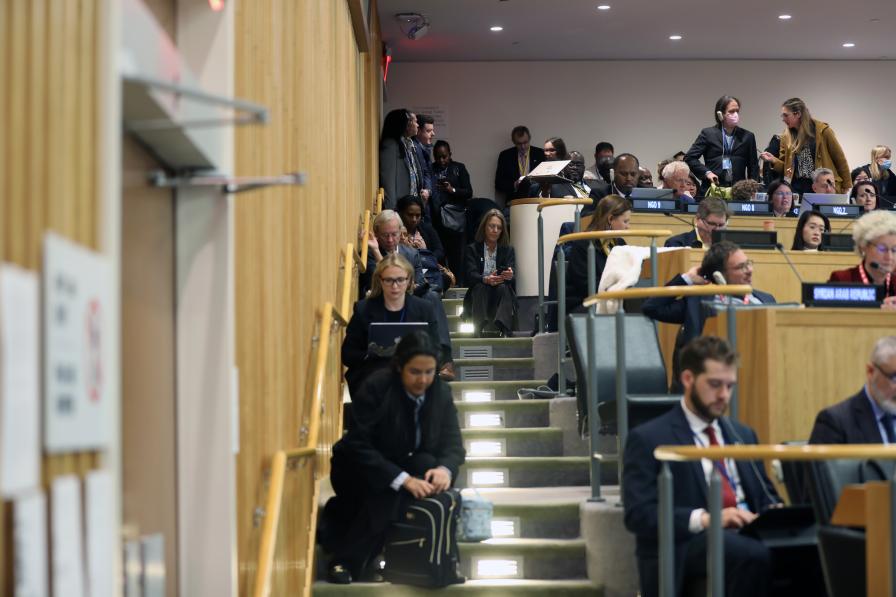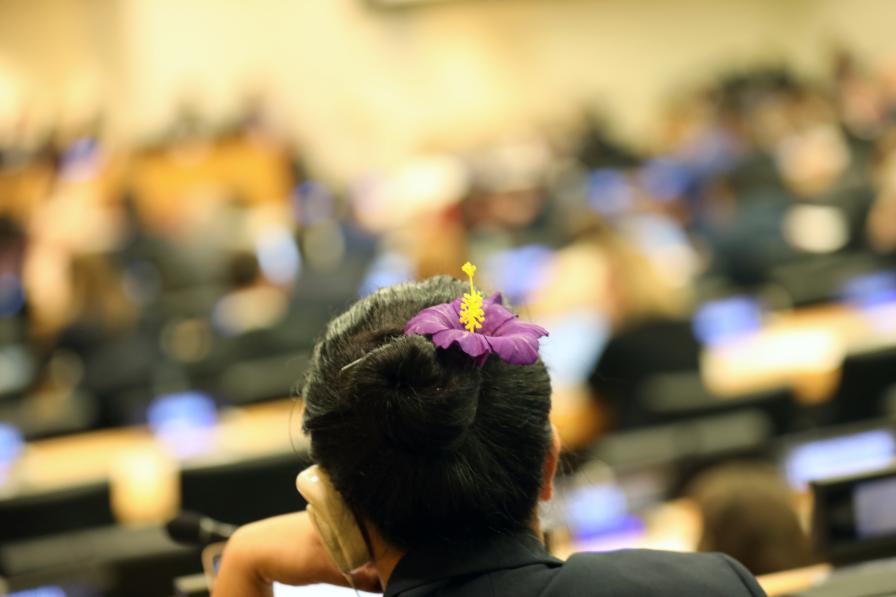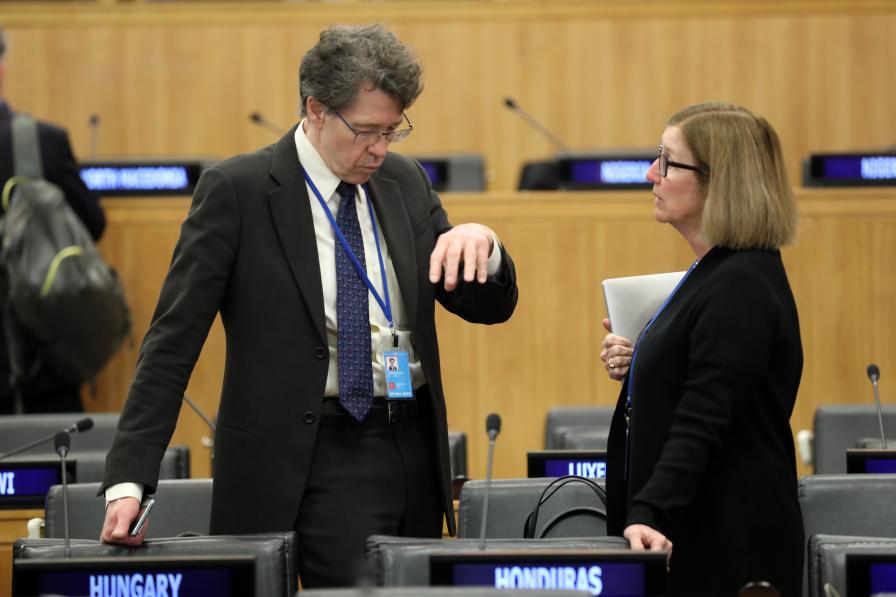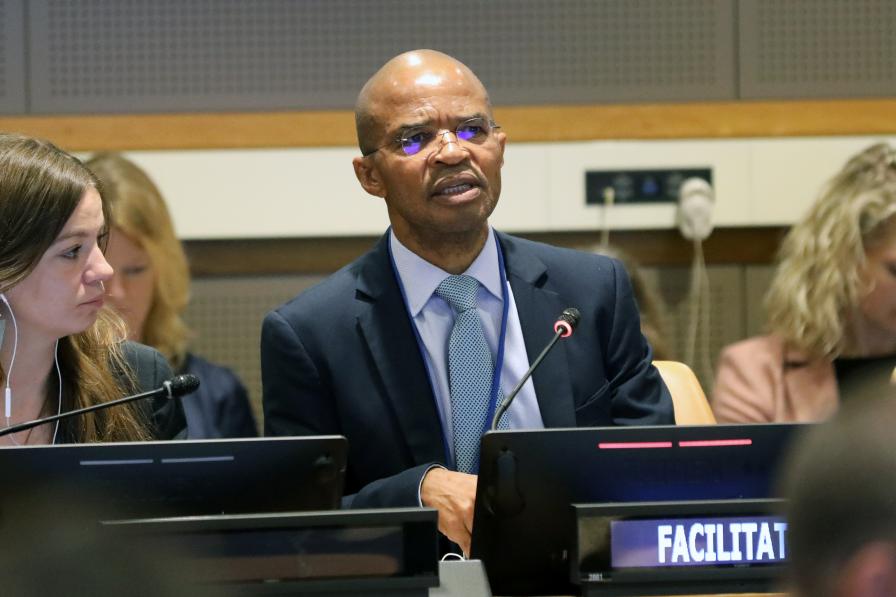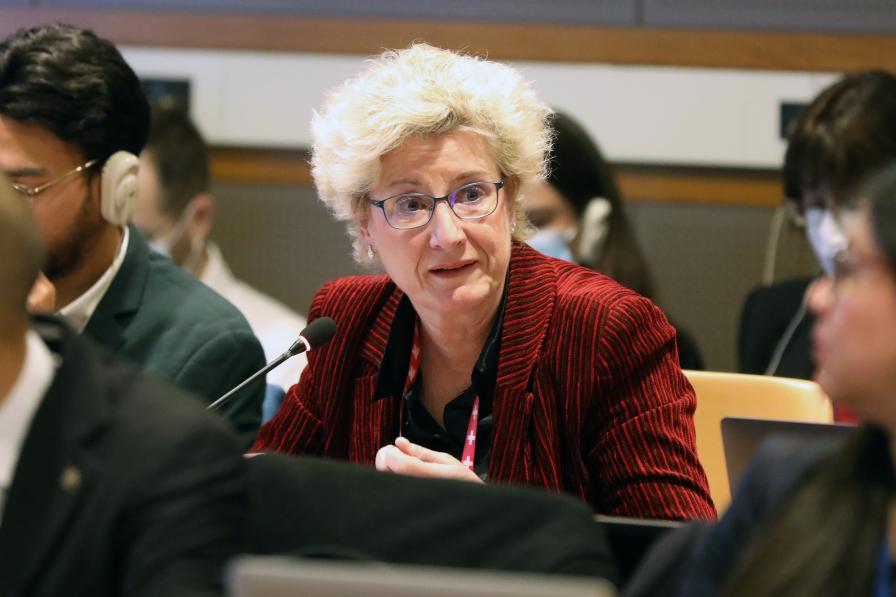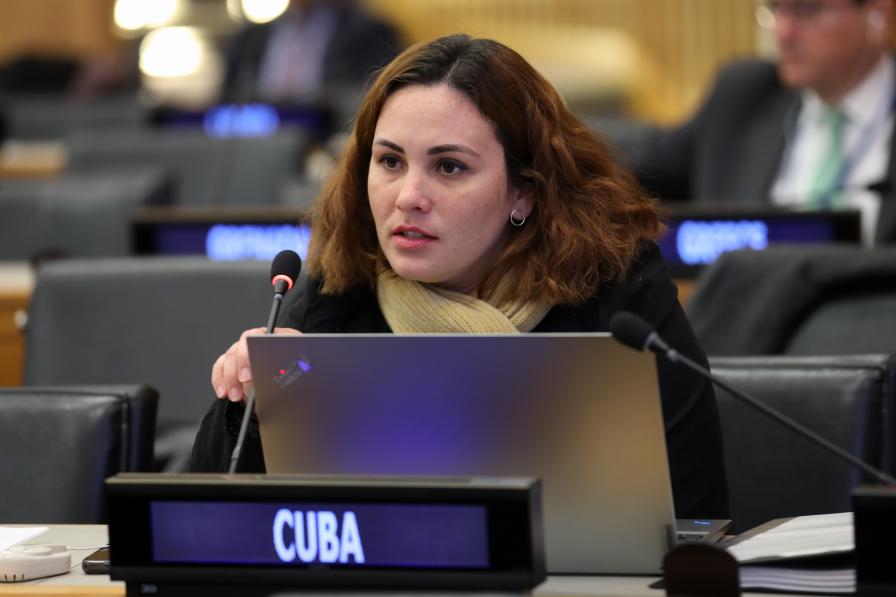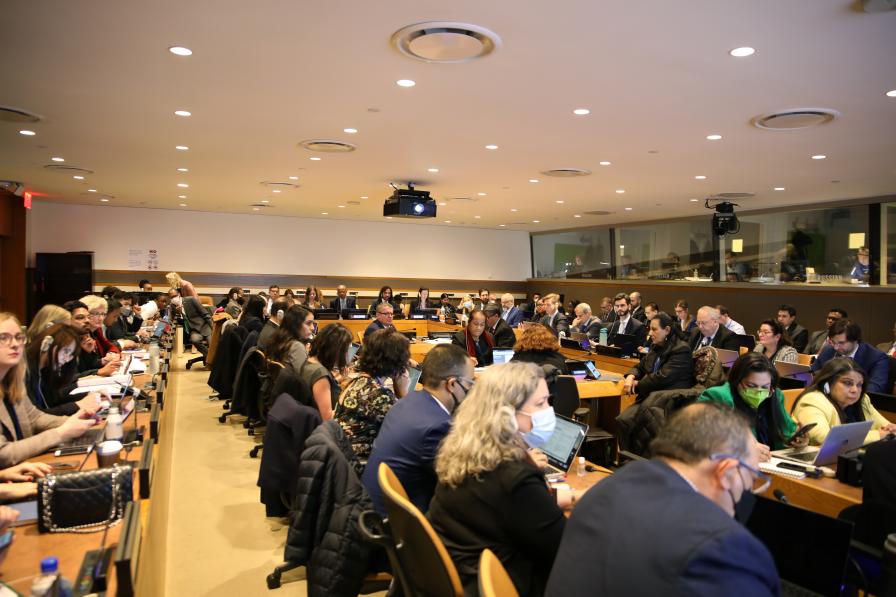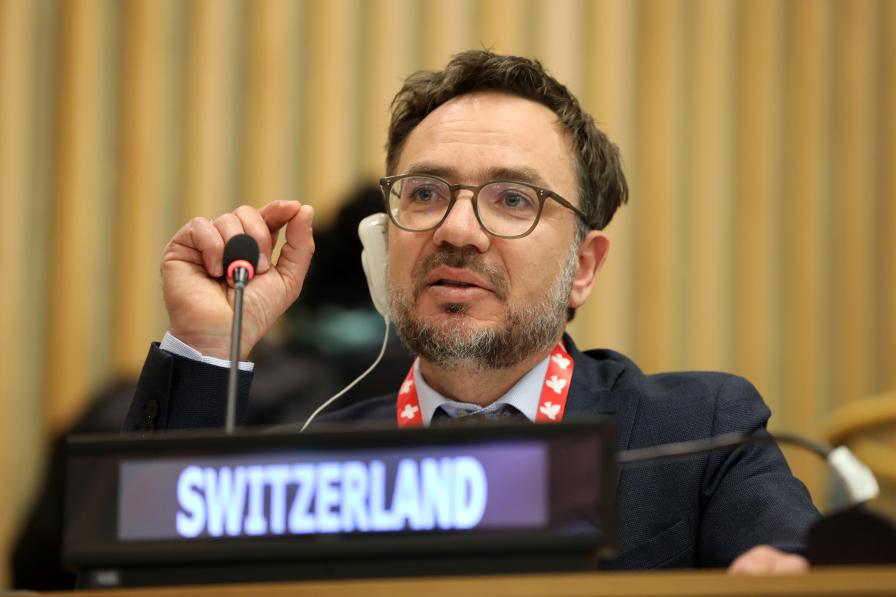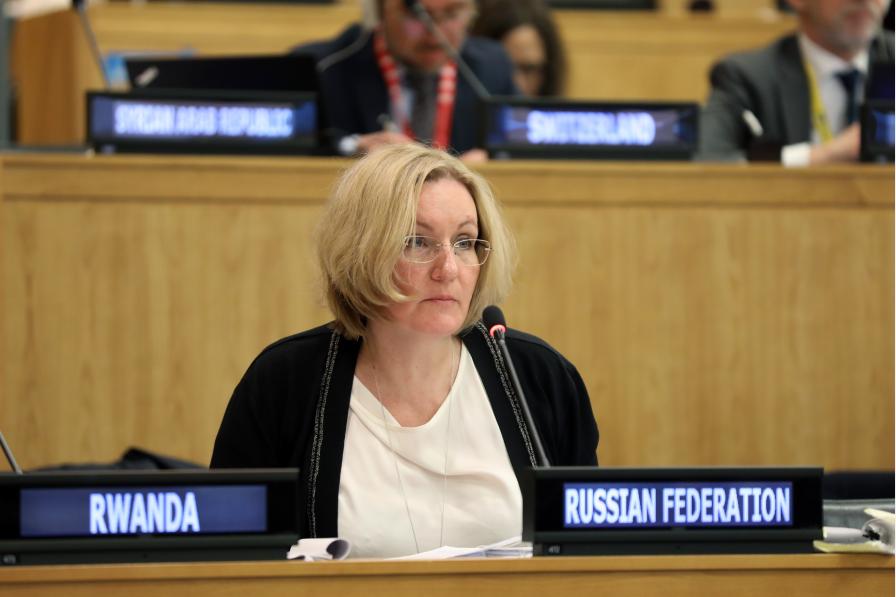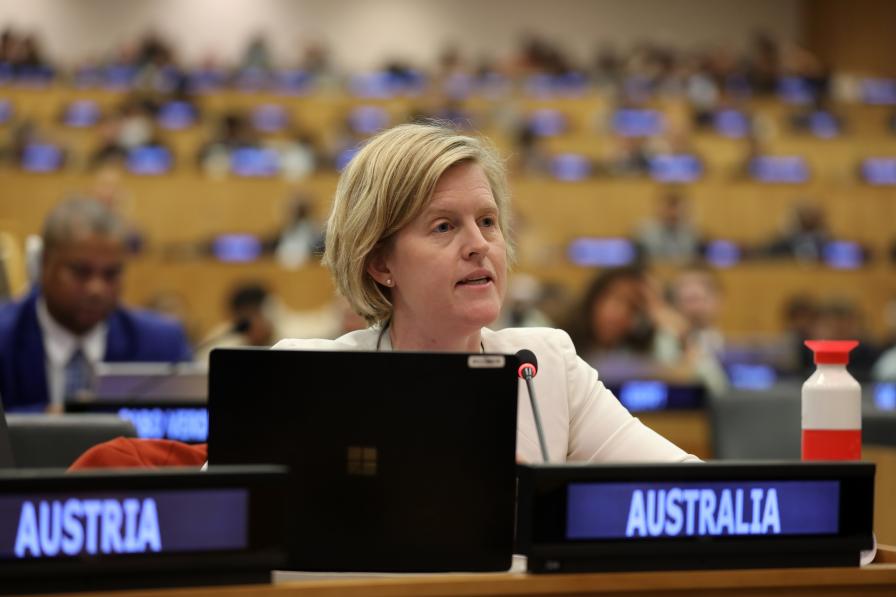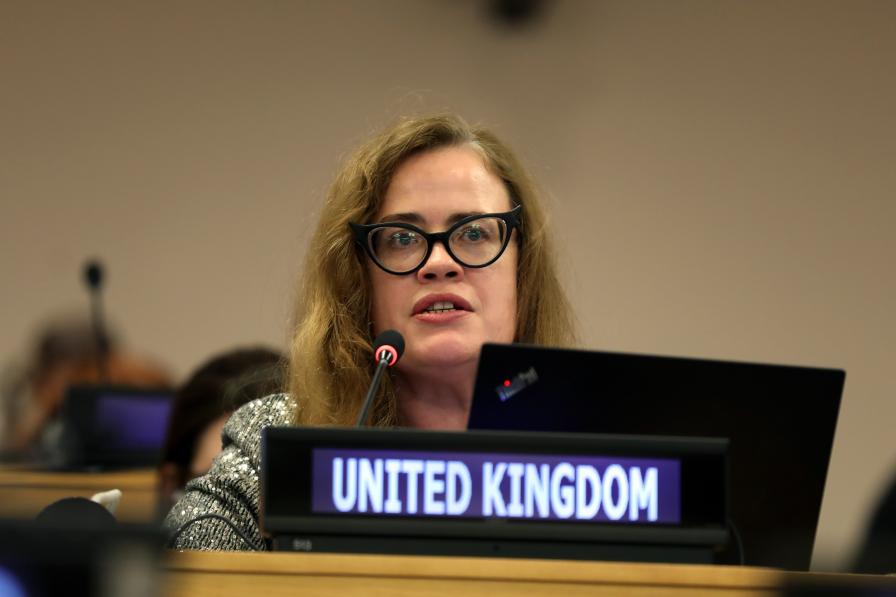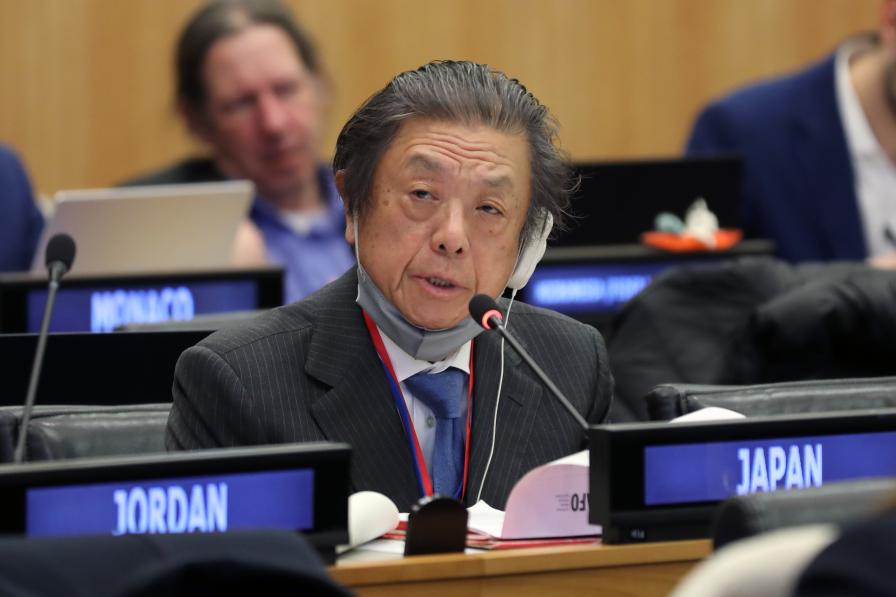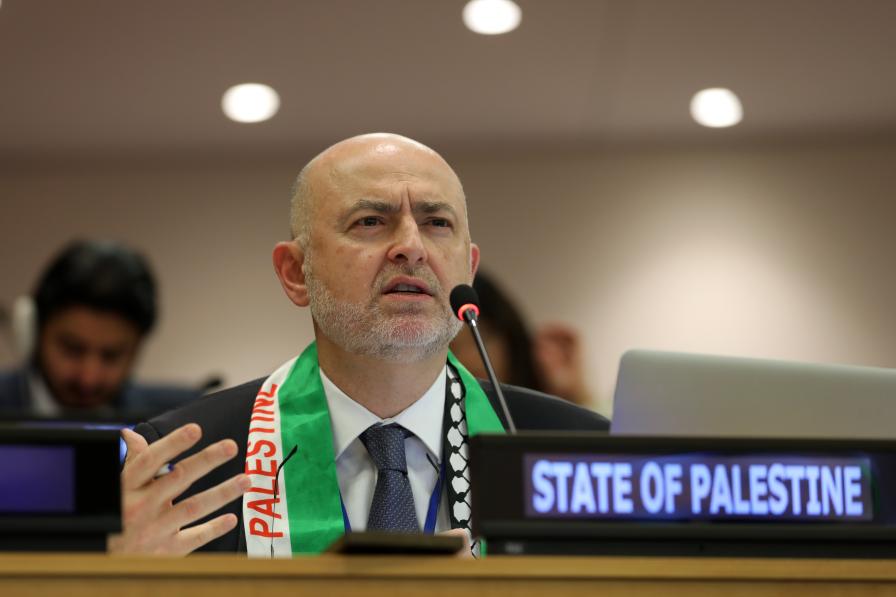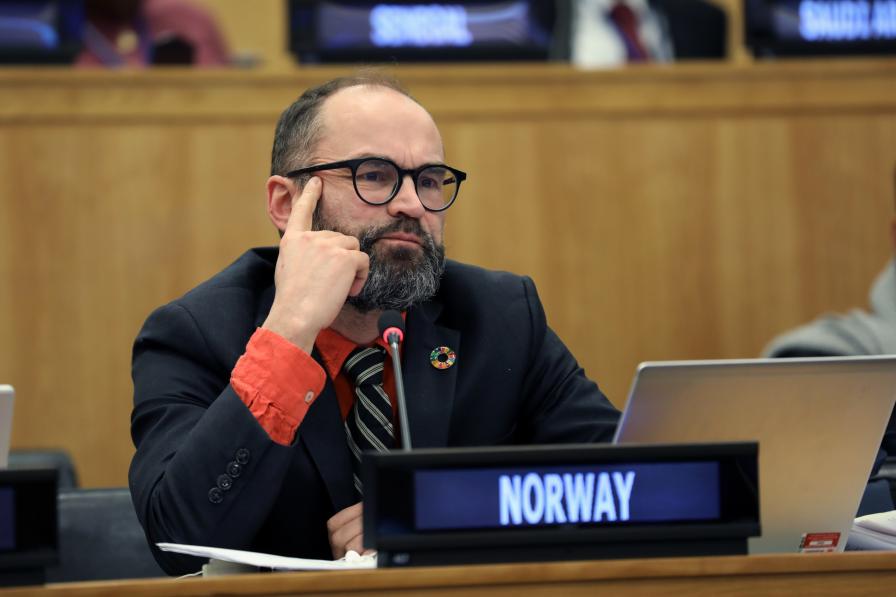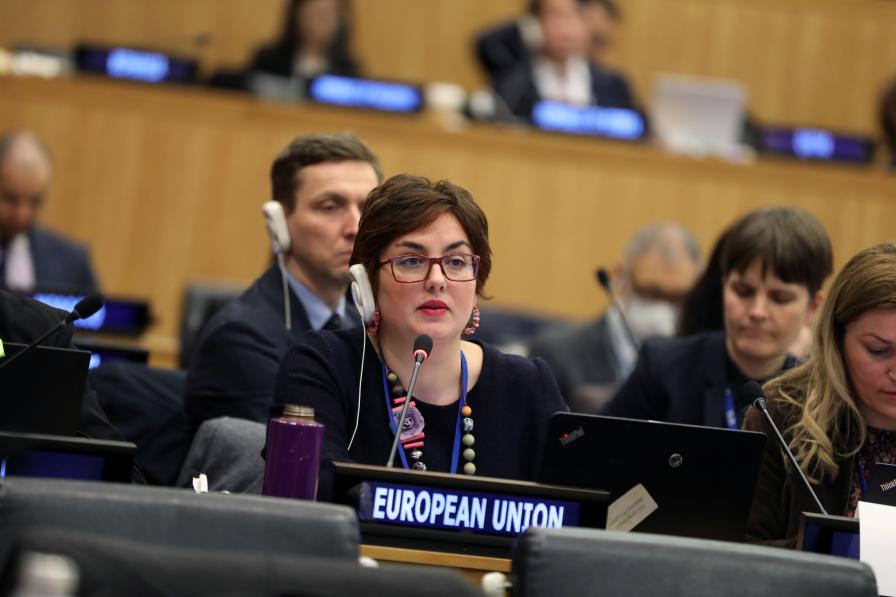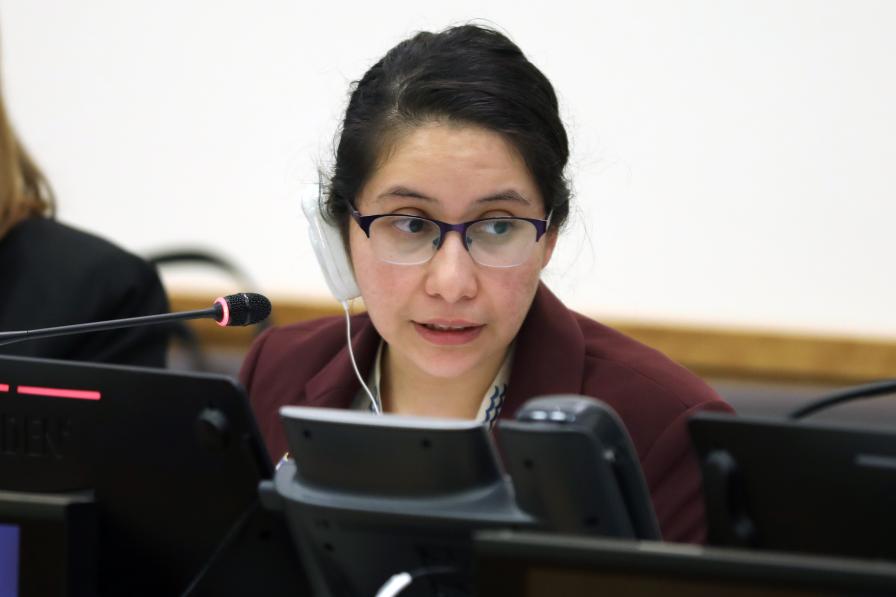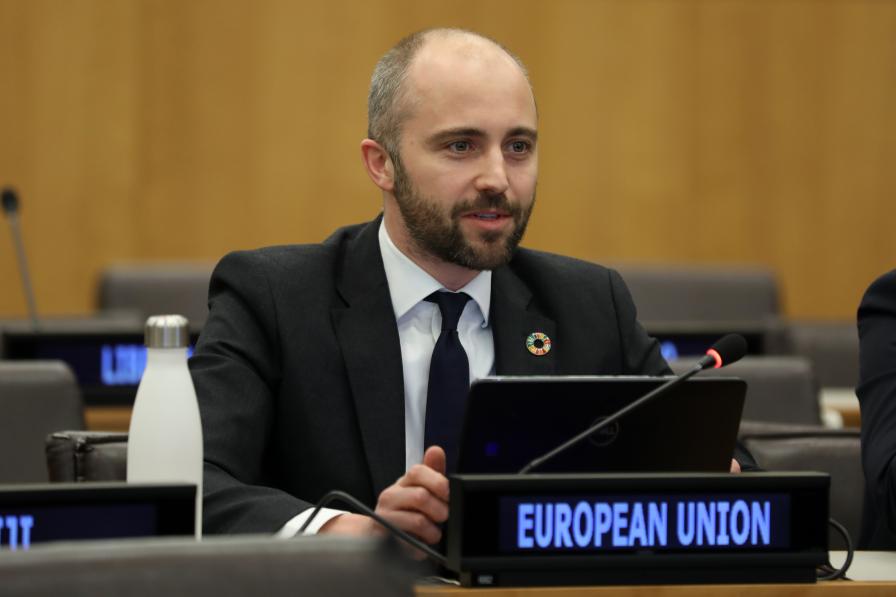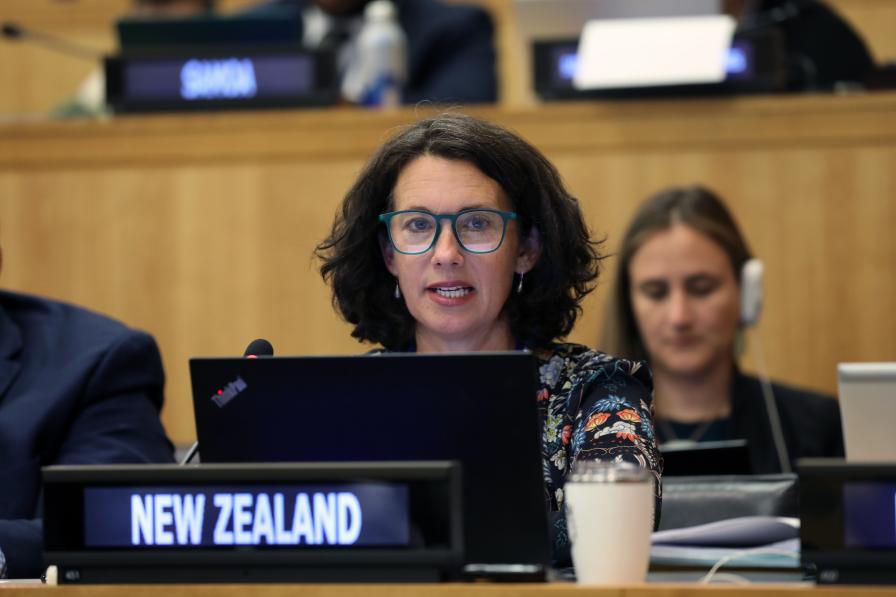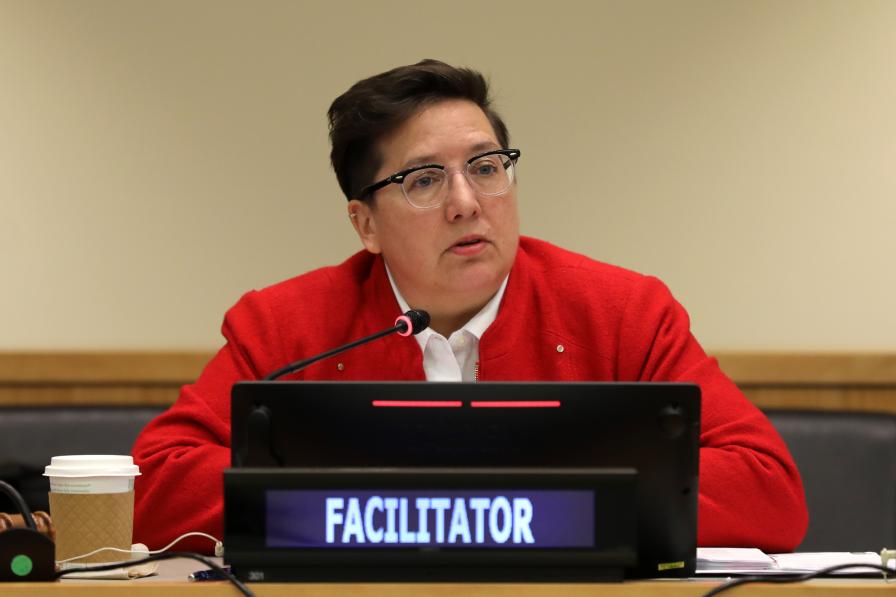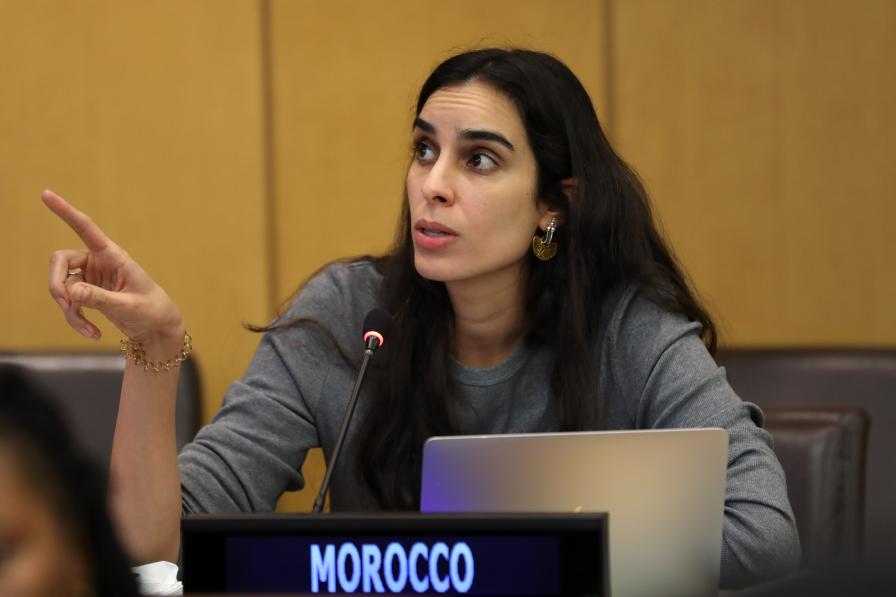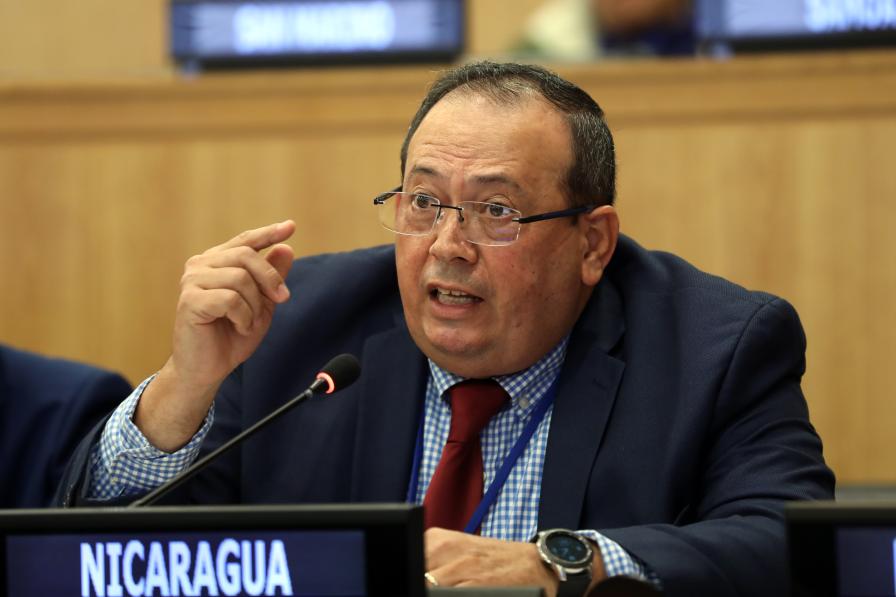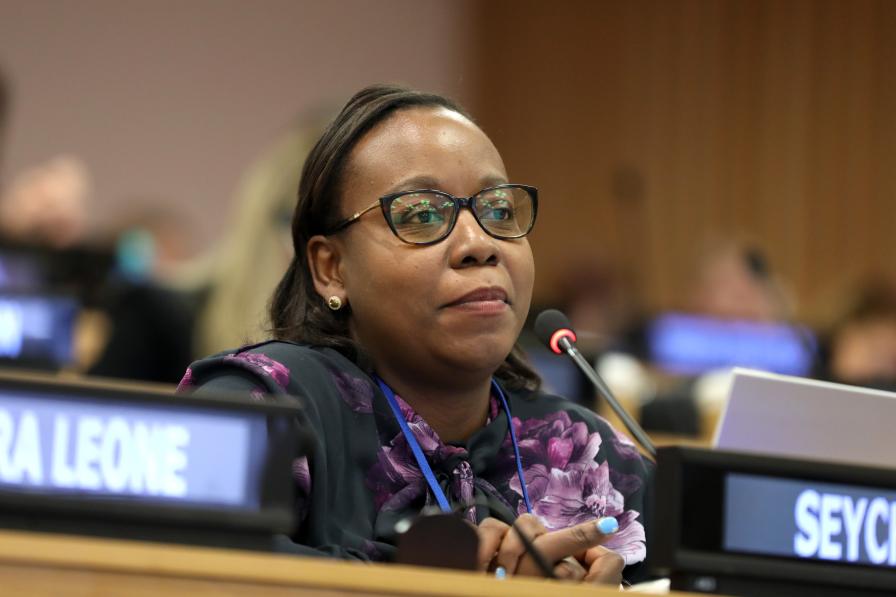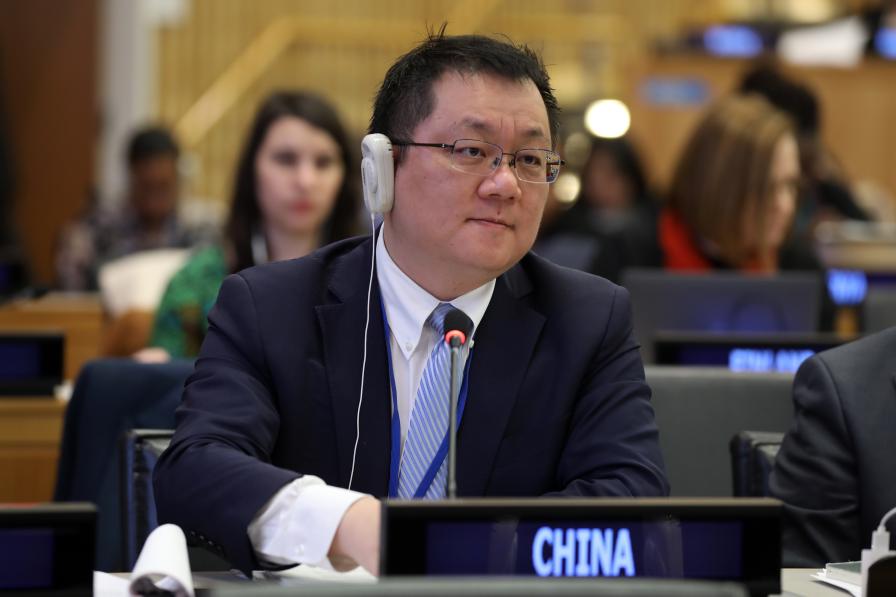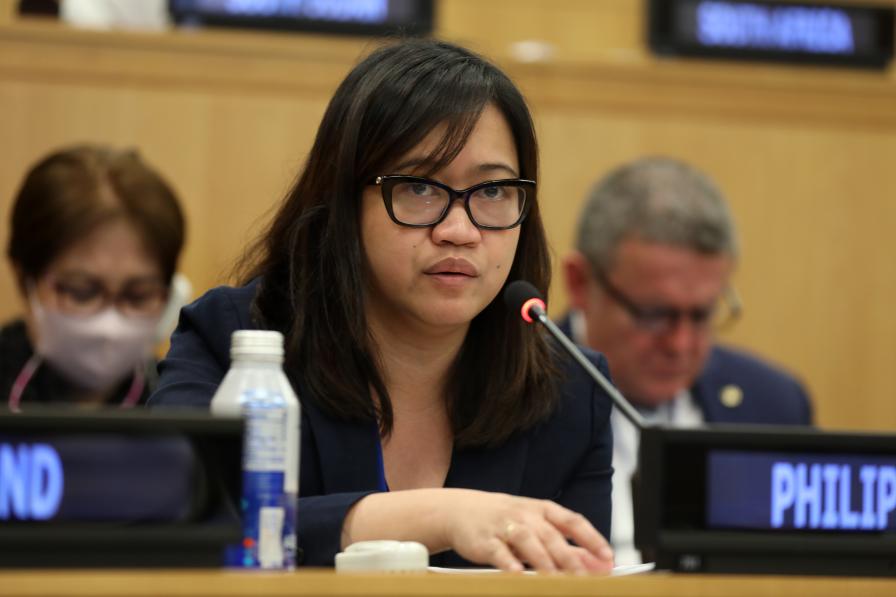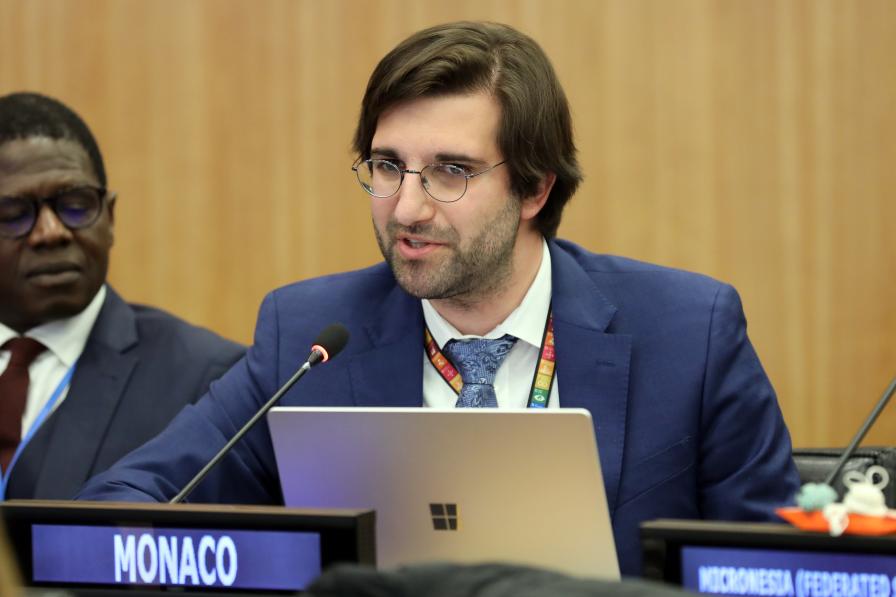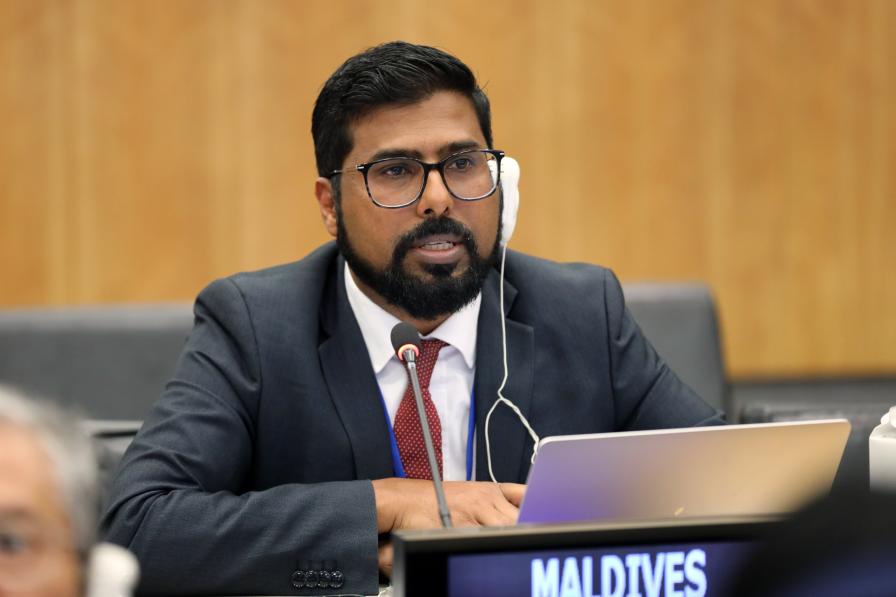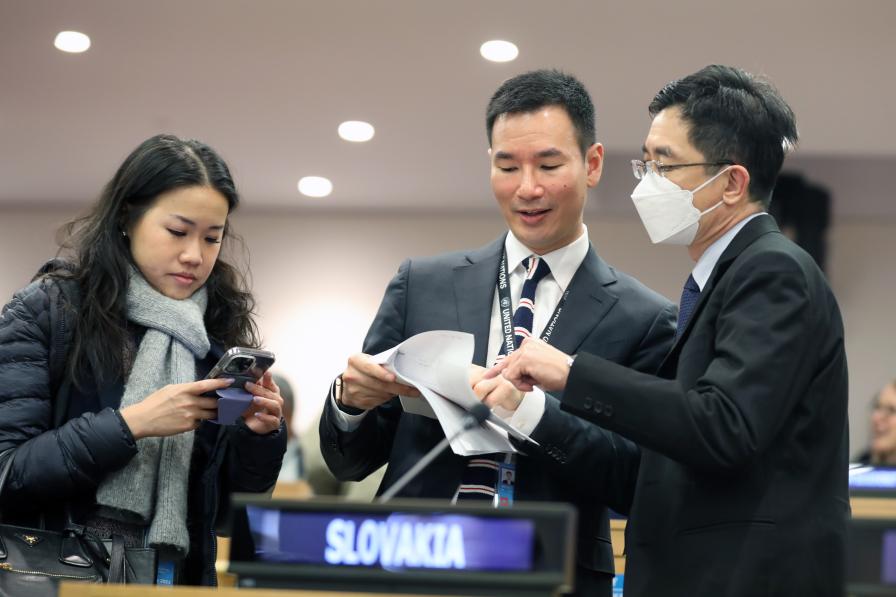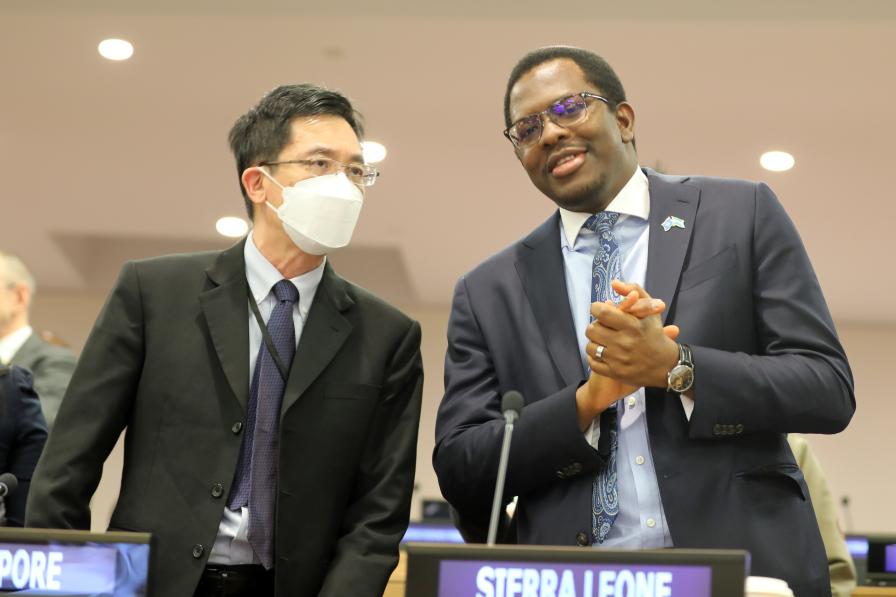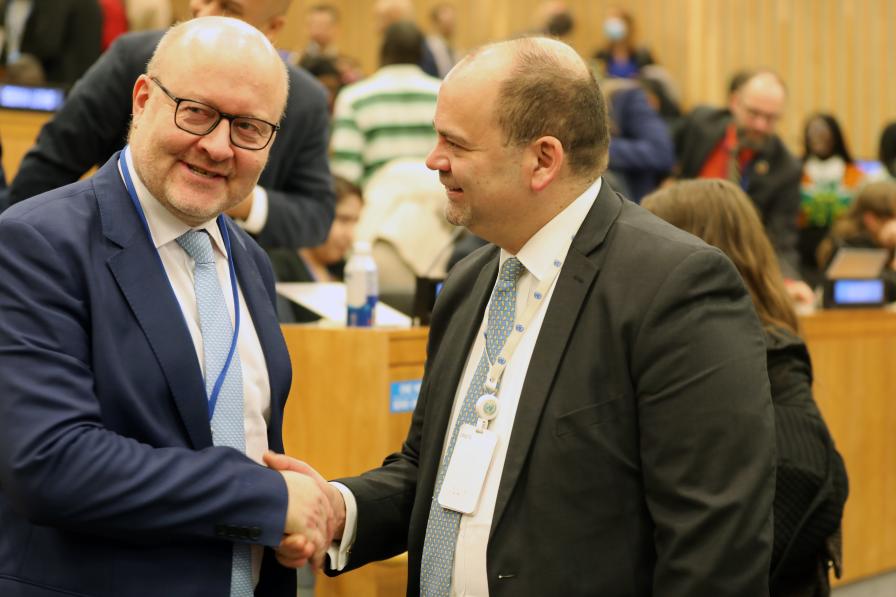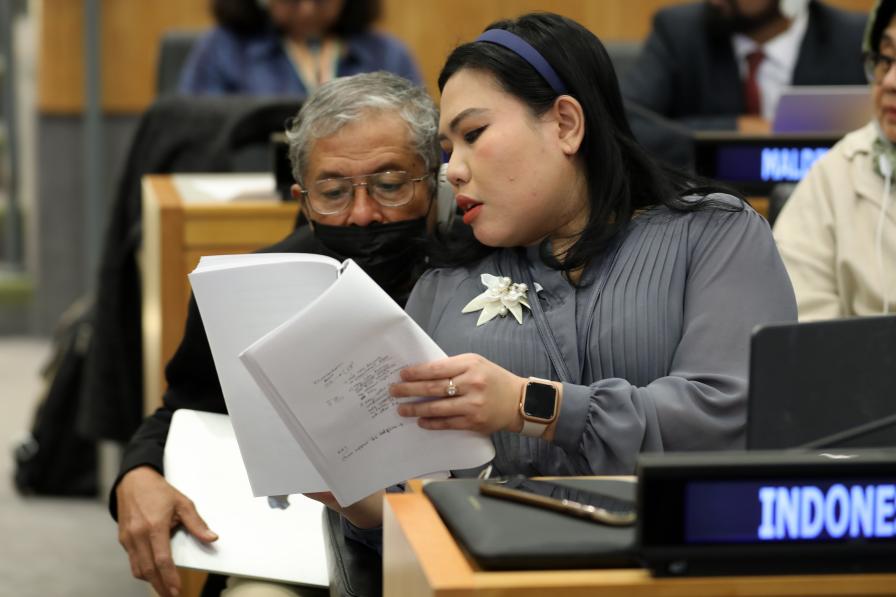Optimism pervaded the plenary as the resumed fifth session of the Intergovernmental Conference (IGC-5.2) on the conservation and sustainable use of marine biological diversity of areas beyond national jurisdiction (BBNJ) opened at UN Headquarters in New York on Monday, 20 February 2023.
Want to dive deep? Read the full Earth Negotiations Bulletin daily report.
IGC President Rena Lee, Singapore, opened the meeting, encouraging delegates to bring their commitment to this resumed session in order to garner consensus on a universal, effective, and future-proof agreement. She encouraged delegates to set aside the disappointment of having come “so tantalizingly close” to agreement at the last session, and to pick up where they left off “as if from an extended long weekend.” President Lee introduced the further revised draft text of an agreement, encouraging delegations to use it as the basis of their forthcoming discussions.
The four elements of the agreement package as contained in the further revised draft text are:
- marine genetic resources (MGRs), including questions on the sharing of benefits;
- measures such as area-based management tools (ABMTs), including marine protected areas (MPAs);
- environmental impact assessments (EIAs); and
- capacity building and transfer of marine technology (CB&TT).
The draft also contains cross-cutting and overarching issues, including on institutional arrangements, financial provisions, and the use of terms.
During the short morning plenary, Miguel de Serpa Soares, Secretary-General of the IGC, Under-Secretary-General for Legal Affairs and UN Legal Counsel, called for a spirit of congeniality to achieve the goal of the IGC and provide future generations with a resilient and productive Ocean. Vladimir Jares, Director, UN Division for Ocean Affairs and the Law of the Sea (UNDOALOS), provided an overview of the meeting’s documents.
IGC-5.2 then went into an informal setting with two sessions running in parallel in the morning and in the afternoon. Delegates opened discussions on MGRs, including questions on the sharing of benefits and cross-cutting issues, specifically institutional arrangements. On MGRs, they focused on, among others, a new submission, as well as a paragraph-by-paragraph reading of the provisions related to the fair and equitable sharing of benefits. Many delegates supported the lifting of the brackets around the “non-monetary benefits,” even though some emphasized that many of the listed activities have a monetary value.
Under institutional arrangements, delegations address the matters related to the Conference of the Parties (COP). They discussed the regularity of COPs, with many preferring meetings at regular intervals, and not necessarily on an annual basis. Delegations also considered the adoption of the rules of procedure by the first COP, with many supporting that these rules should be adopted by consensus.
In the afternoon parallel sessions, delegates considerws aspects related to ABMTs, including MPAs, and CB&TT. Under ABMTs, they addressed, among several issues, the provisions for the COP to recognize ABMTs established under relevant global, regional, subregional, and sectoral bodies, with differing opinions. Many concerns were raised regarding whether these provisions create the possibility of imposition of obligations from non-BBNJ parties, and the potential creation of a hierarchy on bodies that establish ABMTs.
In another room, modalities of CB&TT proved to be a tricky issue, with states diverging on the inclusion of new language on the transfer of biotechnology.
Small group discussions also began in the afternoon, with delegates considering issues related to MGRs and cross-cutting issues. Discussions will continue on Tuesday in informal-informal and small-group settings.
To receive free coverage of global environmental events delivered to your inbox, subscribe to the ENB Update newsletter.
All ENB photos are free to use with attribution. For the Resumed 5th Session of the Intergovernmental Conference (IGC) on BBNJ, please use: Photo by IISD/ENB | Mike Muzurakis
